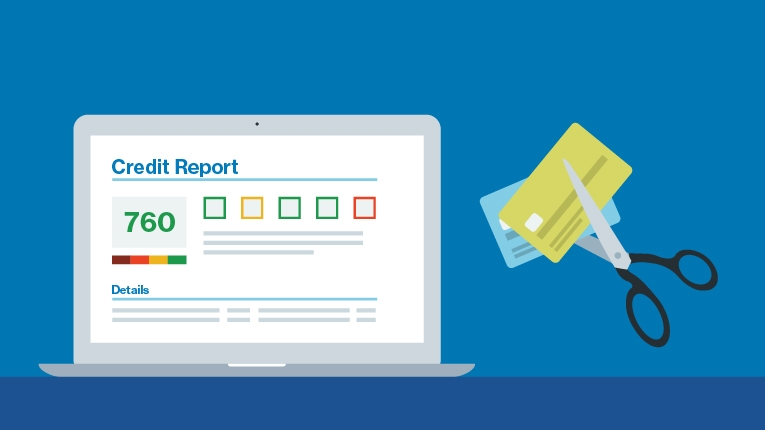The complete guide to short-term loans

While it can be easy to qualify for short-term loans — even with a low credit score or limited income — many come with unfavorable rates and terms. If you need to borrow money, short-term loans should likely be considered as a last resort. In this guide, we’ll take a closer look at what short-term loans are, how they work, and their pros and cons.[1]
What are short-term loans and how do they work?
Short-term loans are a type of loan that must be repaid in a short time – often within a year or less. Short-term loans are typically used by people with poor credit that need access to money fast. Because their credit requirements are lower, short-term loans often charge a higher interest rate and may come with other fees and penalties. The high fees and interest rates make short-term loans an expensive form of debt that often leave borrowers financially worse off.[1]
Why do people get short-term loans?
Short-term loans are often used by borrowers who need access to cash quickly, but don’t have a strong enough credit history to qualify for other types of loans, such as personal loans. Short-term loans are typically used to help cover unexpected expenses, like a medical emergency or car repair. Or they may be used to pay for important bills such as rent or utilities.[1]
4 common types of short-term loans
Short-term loans vary widely. Here are some of the most common types of loans:
1. Payday loans
Payday loans are one of the most well-known types of short-term loans. Payday loans are sometimes referred to as cash advances, check advances, deferred deposits, or deferred presentment loans. Many payday loans require a stable income, but do not require good credit. You’ll often receive the funds, minus any fees, the same day you request the loan. In exchange, you give the lender a post-dated check for the full amount or permission to take a direct debit from your bank account on a predetermined date.[2]
2. Auto title loans
Also known as car title loans, auto title loans may be another option for a short-term loan if you have poor credit. Since you need to offer your car as collateral, the lender may not require a credit check. As with payday loans, you may also receive the funds, minus any applicable fees, the same day, but failure to meet repayment terms can mean forfeiting your car.[3]
3. Pawn loans
Pawn shop loans are another type of short-term secured loan. As with an auto title loan, you must provide collateral on the loan, in this case by handing over a personal possession. When you do so, you receive a loan for an amount based on the item’s value. To reclaim your property, you’ll need to pay the loan back quickly. Otherwise, the pawn shop can take and sell your item.[1]
4. Short-term personal loans
Some lenders offer short-term personal loans with quick repayment schedules and high-interest rates. Rather than making a single lump-sum repayment, as you do with a payday, auto-title, or pawn loans, you make weekly, bi-weekly, or monthly payments on a predetermined schedule. These high-rate, short-term personal loans shouldn’t be confused with other types of personal loans, which typically have longer repayment terms and lower interest rates.[1]
Are there any benefits of short-term loans?
Short-term loans are generally easy to qualify for and may be a good option for people with less-than-perfect credit. When applying for a short-term loan, lenders typically consider your creditworthiness and repayment history. However, not all lenders run a credit check or require a certain credit score to qualify. Short-term loans often also have quick turnaround times and low loan limits — which can make them convenient if you need to borrow cash in a pinch.[1]
Short-term loan disadvantages
If you’re considering short-term loans, it’s important to understand some of their key disadvantages before accepting one. Keep in mind that interest rates, fees, and repayment terms vary widely, depending on the type of loan. So it’s important to check the fine print to be sure you fully understand the terms and total cost of your short-term loan.
High interest rate
Lenders often charge higher than average interest rates on short-term loans. Rates vary greatly between the different types of short-term loans. For instance, payday loans typically charge a fee of $15 per every $100 borrowed, which equates to an annual percentage rate (APR) of nearly 400% for a two-week loan. Before taking out a short-term loan, be sure you understand the total cost of the loan.[1][2]
Can be difficult to repay
Short-term loans generally need to be repaid quickly — some faster than others. While you may have a few months to pay back a short-term personal loan, other types of short-term loans have significantly shorter payment schedules. For example, most payday loans need to be repaid within two to four weeks. While many payday loans let you extend or “re-up” the loan, you may pay a fee and continue accruing interest. This puts many borrowers into a “debt trap” — continually renewing their payday loans to cover the interest and fees.[1][2]
Lots of fees
Short-term loans often come with fees that aren’t common with traditional loans. For example, if you can’t pay your payday loan back on time, you may be charged a fee to re-up the loan. Pawn shop loans not only require you to hand over a personal possession in exchange for a loan based on the item’s value, but also charge interest, fees to set up the loan, and fees to store your items. With an auto title loan, you’re required to put your car title up as collateral. If you default on the loan, the lender can seize your vehicle.[1]
Short-term loan alternatives
If you lack good credit and need to borrow cash, it may seem like short-term loans are your only option. They can be costly and can lead to a cycle of debt. Before you run that risk, consider these alternatives:
Ask friends and family. While borrowing money from your inner circle can get complicated, it’s worth considering if you only need a small amount of cash to make ends meet or cover an unexpected expense.
Consider a cosigner. Applying with a co-borrower who has a good credit history can help boost your chances of qualifying for a traditional loan or credit card.
Try a paycheck advance app. Some paycheck advance apps provide an advance on your paycheck, often with little to no fees.[4]
Use a credit card. Interest rates tend to be high for purchases and higher still for cash advances, but they are generally still lower than payday loan rates.
Talk to your creditors. If you’re behind on your bills, check with current lenders and credit card issuers to find out if you qualify for a hardship protection plan to pause or lower your monthly payments temporarily.
The bottom line
Sometimes a short-term loan may be your only option — especially if you need to cover an emergency expense or pay an important bill. Keep in mind that many personal loans don’t require perfect credit and offer fast funding and longer, less costly repayment terms. With LendingClub Bank, you can check your loan rates without impacting your credit score in only a few minutes. So before resorting to a short-term loan, it may be worth checking to see if you qualify.[1]
Consumer Financial Protection Bureau. “Making Ends Meet series: Consumer use of payday, auto title, and pawn loans.”
Consumer Financial Protection Bureau. “What is a payday loan?”
Consumer Financial Protection Bureau. “Single-Payment Vehicle Title Lending.”
Consumer Financial Protection Bureau. “The Benefits and Dangers of Paycheck Advance Apps.”




